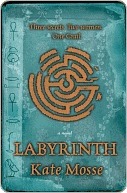More on this book
Community
Kindle Notes & Highlights
The Bons Homes valued inner faith above outward display. They needed no consecrated buildings, no superstitious rituals, no humiliating obeisance designed to keep ordinary men apart from God. They did not worship images nor prostrate themselves before idols or instruments of torture. For the Bons Chrétiens, the power of God lay in the word. They needed only books and prayers, words spoken and read aloud. Salvation was nothing to do with the alms or relics or Sabbath prayers spoken in a language only the priests understood.
In their eyes, all were equal in the Grace of the Holy Father—Jew or Saracen, man and woman, the beast of the fields and the birds of the air. There would be no hell, no final day of judgment, because through God’s grace all would be saved, although many would be destined to live life many times over before they regained God’s kingdom.
in these darkening times, the Bons Chrétiens were good men, tolerant men, men of peace who celebrated a God of Light rather than cowering under the wrath of the Catholics’ cruel God.
“Mankind does not much change, Jeanne. On the surface, we seem different. We evolve, we develop new rules, new standards of living. Each generation asserts modern values and dismisses the old, priding itself on its sophistication, its wisdom. We appear to have little in common with those that have gone before us.” He tapped his chest. “But within these tunics of flesh, the human heart beats the same as it ever did. Greed, desire for power, fear of death, these emotions do not change.” His voice softened. “The things that are fine in life, too, do not change. Love, courage, willingness to lay
...more
Stories shift their shape, change character, take on different colors depending on the words you use, the language in which you choose to tell them. Sometimes more serious, sometimes more playful, more melodic, say. Here, in this part of what they now call France, the langue d’Oc was spoken by the people whose land this was. The langue d’oïl, the forerunner of modern-day French, was the language of the invaders. Such choices divided people.”
“The Cathars believed that the world we can see, hear, smell, taste and touch was created by the Devil. They believed the Devil had tricked pure spirits into fleeing God’s kingdom and imprisoned them in tunics of flesh here on Earth. They believed if they lived a good enough life and ‘made a good end’ their souls would be released from bondage and return to God in the glory of Heaven. If not, within four days they would be reincarnated on Earth to start the cycle anew.”
the Bons Homes were loved by the people they served. They didn’t charge for officiating at marriages, naming children or burying the dead. They extracted no taxes, demanded no tithes. There’s a story of a parfait coming across a farmer kneeling in the corner of his field: ‘What are you doing?’ he asked the man. ‘Giving thanks to God for bringing forth this fine crop,’ the farmer replied. The parfait smiled and helped the man to his feet: ‘This isn’t God’s work, but your own. For it was your hand that dug the soil in the spring, who tended it.’”
“Alaïs was like them. She helped people, put the needs of others before her own. She did what she thought was right, regardless of what tradition or custom dictated.” He smiled. “Like them she believed there would be no last judgment. She believed that the evil she saw around her could not be of God’s making, but, in the end, no. She was not. Alaïs was a woman who believed in the world she could touch and see.”
Bons Homes refused to worship idols, crosses or altars—carved from the rocks and trees of the Devil’s base creation—they held the word of God in the very highest esteem.”
“Things will be as they will be,”
History is written by the victorious, the liars, the strongest, the most determined. Truth is found most often in the silence, in the quiet places.”


